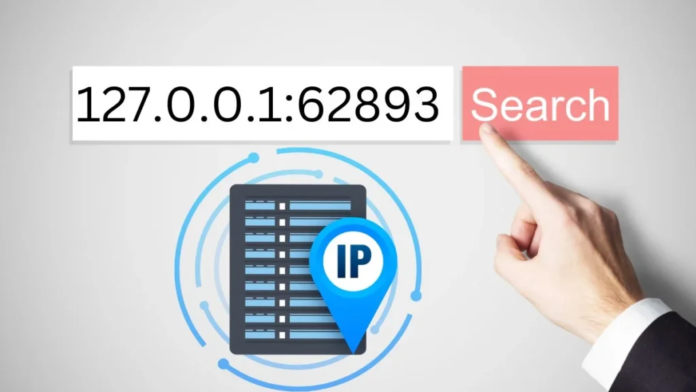Introduction To 127.0.0.1:62893:
In the world of networking, certain addresses and ports play crucial roles in how computers communicate with each other and with the applications running on them. One commonly encountered address is 127.0.0.1, which is referred to as localhost. Combine this with a port number, such as 62893, and you have an address like 127.0.0.1:62893, which can be critical for local communication between services and software on the same device.
What Does 127.0.0.1:62893 Mean?
127.0.0.1:62893 refers to a service running on your computer that uses the loopback address (127.0.0.1) to communicate internally. The port number 62893 specifies the exact application or service on your device that is being accessed. This setup is often used for local testing and development.
The Role of Ports
Ports are like specific doors on your computer that allow different services and applications to communicate. Each port has a unique number, and when data comes into your computer, the port number helps direct that data to the correct application. For example, a web server might use port 80, while another service could use a different port. This way, multiple services can run on the same device without getting mixed up.
Common Scenarios Involving 127.0.0.1:62893
1. Local Development Environments
In web development, it’s common to run a local server on 127.0.0.1. The port number might vary depending on the setup. For example, a local server for a web application might be running on 127.0.0.1:62893, and you would access the application in your browser by typing this address.
2. Testing and Debugging
When testing network applications, developers often use 127.0.0.1 as the target address. This allows them to simulate network traffic and interactions without sending data over the actual internet. If the application is configured to use port 62893, that’s where the traffic will be directed.
3. Configuration Settings
Some software may require configuration to listen on a particular IP address and port. For example, a database or API might be set up to listen on 127.0.0.1:62893. This would mean that only applications running on the same machine can access the service, providing an additional layer of security.
4. Error Messages
If an application fails to connect to a service running on 127.0.0.1:62893, you might see an error message indicating that the connection to this address was refused or timed out. This could happen if the service is not running or if a firewall or configuration issue is blocking the connection.
Why You Should Care About 127.0.0.1:62893?
1. Local Application Connectivity:
If you’re developing or running applications that need to communicate locally, knowing how to work with local hosts and ports is essential. Issues with the wrong port being used or conflicts between applications can cause errors that disrupt your workflow.
2. Security:
By binding services to 127.0.0.1, you ensure that they are only accessible from the local machine. This can be a good security measure, as it prevents external entities from accessing sensitive services. For example, running a database on 127.0.0.1:62893 means that only applications on your machine can connect to it, reducing the risk of external attacks.
3. Performance Testing:
Developers often need to test how their applications perform under different network conditions. Using 127.0.0.1 ensures that there are no external network factors influencing the results, providing a controlled environment for testing.
How To Work With 127.0.0.1:62893?
1. Identify Which Application is Using the Port:
If you’re unsure which application is using 127.0.0.1:62893, you can use tools like Netstat or lsof to see a list of processes and the ports they are using. This can help you troubleshoot issues if there’s a port conflict or if you need to stop a service.
2. Modify Port Assignments:
In some cases, you may need to change the port that an application is using. Most software allows you to configure the port number in a settings file or through command-line options. If 62893 is in use, you can assign a different port to avoid conflicts.
3. Check Firewall Rules:
If an application cannot connect to 127.0.0.1:62893, it might be due to a firewall rule blocking the traffic. Make sure that local connections to that port are allowed in your firewall settings.
Conclusion:
In summary, 127.0.0.1:62893 refers to a local service operating on your computer, utilizing the loopback address and port 62893 for internal communication. Understanding this setup is essential for local development, testing, and security. By managing ports and configurations properly, you can ensure smooth communication between services while keeping your system secure and efficient.


